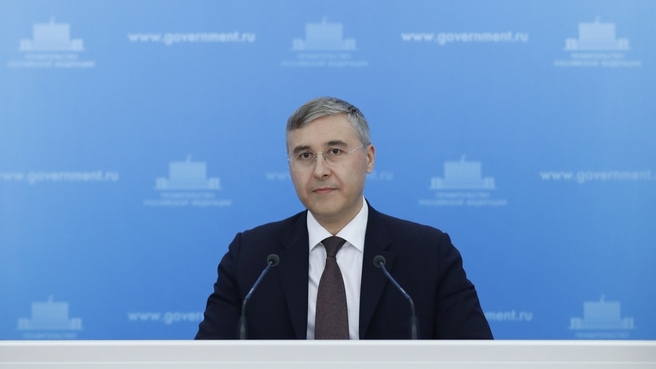The briefing focuses on the organisation of the education process, state examinations, the admissions campaign at universities and support programmes for teachers and universities during the spread of the coronavirus infection.
Excerpts from the transcript:
Valery Falkov: The spread of the coronavirus infection has become a serious challenge for the entire system of science and higher education. Back on 16 March, we recommended that scientific organisations and universities switch to online format. Most of them followed this advice over the course of just one week. And speaking about universities, we have three main tasks at hand. The first, the main one, is to organise the education process in this new, difficult time and achieve the highest standard of education. The second important task is to support teachers who have no experience of working in the virtual environment. The third difficult task that all the universities are solving together today is to support students, because their situation is the most vulnerable.
Question: It has been five weeks since universities switched to remote education. Will universities revise the cost of education in this context?
Valery Falkov: This is a very pertinent question. There can be no universal solution for all universities and all students simply because students’ assessments of the quality of remote education are different, and universities – we have several hundred of them – have organised the education process differently. However, I know that all the universities are concerned about this and are looking for an answer to this difficult question. Just yesterday we had a meeting with the Russian Union of Rectors, the Association of Leading Russian Universities and the Association of Global Universities where a package of measures to support students was discussed. I believe that we will study the issue carefully very soon and, of course, inform everyone about decisions we will make.
Question: Mr Falkov, before the outbreak of the coronavirus many students could work part-time, and it was very important for them. Will the ministry and universities support students in this situation?
Valery Falkov: At the initiative of the ministry, universities have launched a special programme to support students’ employment. We understand that many of them are in a difficult situation because they had certain opportunities to find part-time jobs before the outbreak of the coronavirus, but these are obviously no longer available.
This is why universities – now more than a hundred of them – are organising special temporary employment in their regions in the interests of socioeconomic development (right now, this is just for the period of the pandemic, but the programme could gain a foothold).
Students help teachers and school students study for their exams and organise lessons. They also help universities organise normal communication between students and teachers during this difficult time. So there are a lot of employment options, all the universities are creative.
Question: How will the state examination and issue of diplomas take place at universities?
Valery Falkov: Universities are developing concrete forms for the final state examination, taking the standard into consideration. If the standard allows just the defence of the graduation qualification work without the state examination, some universities will use this right.
The scenario of the graduation ceremony will be chosen depending on the current epidemiologic situation. Of course, the lives and health of students and teachers are the priority.
Question: Mr Falkov, some entrance exams, for example, in art universities, require the candidate to be present. What can universities do in such cases?
Valery Falkov: Art universities have a special place in the higher education system, because each one of them is unique. Why? Because the entrance and education process both require personal contact between the teacher and the student, or the applicant. Together with the Ministry of Culture and art universities, we are looking for the best way to organise the entrance exams.
Question: When will the academic year begin at universities?
Valery Falkov: We will begin the academic year on 1 September. The format of education will be chosen based on the situation.
